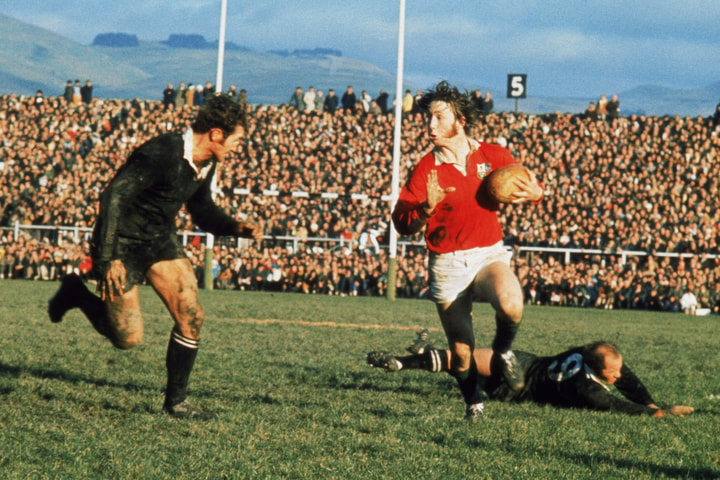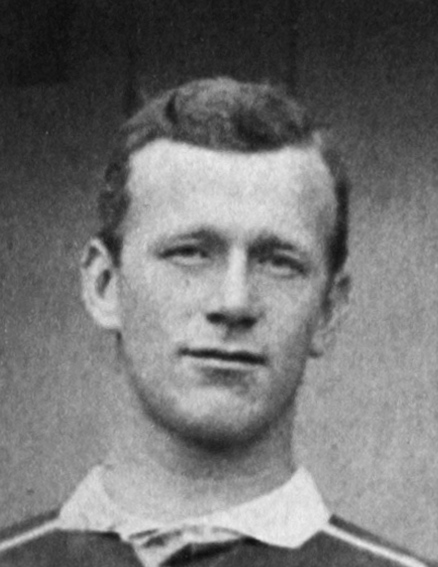
18 January 2026


"Dai" Westacott had just one cap at forward for Wales but might have expected more, since he played for Cardiff for seven seasons during one of the club's most successful periods. However, he had the misfortune to be selected for what turned out to be one of Welsh rugby's most disappointing international performances in the years leading up to the First World War. In 1905-6, Wales were in the middle of their First Golden Era, a twelve year period of astonishing success, which included six Triple Crowns. In March 1906, they only had to beat Ireland in Belfast to achieve what no other international side had yet managed: a consecutive Triple Crown. And, having defeated New Zealand the previous December, they would also become the first side to record four wins in a season. However, it was not to be. The whole team suffered from acute sea sickness during an atrocious crossing of the Irish Sea. They played badly and were well beaten by the Irish by 11 points to 6. There was, of course, great disappointment about the result in Wales and, despite the circumstances, someone had to be blamed. Even though the whole pack had played badly, Dai and his fellow debutant Jack Powell were never picked by Wales again. Born in 1882 in Grangetown, near Cardiff docks where he worked as a labourer, Dai was very much a local man and was well known to many of the regular supporters at the Arms Park. He was introduced to rugby at the Grange elementary school and developed his game at the grassroots level in the sometimes brutal league and cup competitions organised by the Cardiff and District Rugby Union. By 1902-3, he was beginning to come to prominence while playing for Grange Stars, who that year won the Cardiff and District Union's senior competition, the Mallett Cup - still competed for today. Then, as now, the final was held at the Arms Park and, following Dai's impressive performance, he was invited to join the Cardiff club for the 1903-4 season. Tough and renowned for his immense strength (no need for weight training for dockers like Dai), he was also a good handler of the ball and surprisingly fast and elusive for a forward. He quickly established himself as a First XV player and in only his second season with the club, he played in every match. Before long he was being referred to as a future international. In December 1905, Dai was playing well enough to be included in the Glamorgan pack which outplayed their New Zealand opponents though, a trifle unfortunately, the home side lost 9-0. Dai should have appeared against the All Blacks again, this time for Cardiff, but an unlucky injury forced him to withdraw. The press worried that his absence would prove costly and it may well have done. Cardiff lost narrowly by 10 points to 8. Agonisingly, a missed conversion resulted in the club's only defeat in 1905-6. After winning his Welsh cap, Dai continued to be a prominent cornerstone in the Cardiff pack over the following four seasons, though he did have a brief spell with Penarth RFC. However, despite playing consistently well at the highest level, he was still ignored by the Welsh selectors. His most memorable performance for Cardiff during this period was in their crushing 24-8 victory over the touring Australians in December 1908. Demonstrating his all-round footballing skills, late in the game, he broke through the Wallabies' defence, headed for the line but then gave a perfectly timed pass to the wing JL Williams, who sprinted in to score a spectacular fifth try for Cardiff.
Johnny Williams was another Welsh international who would tragically lose his life in the war. Although he was a family man with four children, Dai volunteered in the first months of the war, as did so many other rugby footballers. He suffered much hardship during the conflict. By February 1915, he was already in France with the 1st Battalion Gloucestershire Regiment. Serving alongside him was the Gloucester RFC and England forward Harry Berry. They were old adversaries and had played against each other in 1909-10, Dai's last season with Cardiff. Sadly, Harry was killed at Aubers Ridge shortly afterwards. Dai too became a casualty when he was badly wounded on the Somme in 1916, but he later returned to active service during the bitter fighting in the Third Battle of Ypres, this time with the 2/6th Battalion Gloucestershire Regiment. On 28th August 1917, his battalion was in the line north-east of Ypres near Wieltje. It was a relatively quiet day but nobody was completely safe on the Western Front. Artillery was always a great danger and it was a random shell which caught Dai in a support trench. He was killed instantly. During the Passchendaele Ceremony, which is held in November each year to commemorate the end of Third Ypres, the lives of three of the fallen combatants are remembered. In the 2015 Ceremony, ninety-eight years after his death, it was the Cardiff docker Dai Westacott, who was honoured as the representative of all of the men of the British Army who died in that dreadful battle. Dai has also recently been remembered by the Welsh writer David Subacchi. His poem "Dai Westacott" can be found on the Amsterdam Quarterly website. Private Westacott's burial place was subsequently lost, so today he is commemorated, not far from where he died, on the Tyne Cot Memorial near Zonnebeke. His is one of 35,000 names on the memorial, which commemorates those who died in the Ypres Salient after 16th August 1917 and who have no known grave.

About the Author: Gwyn Prescott is a Cardiff based rugby historian and writer. His book 'Call Them to Remembrance': The Welsh rugby internationals who died in the Great War is available through publishers St. David's Press and from Amazon.
Follow the World Rugby Museum on Facebook, Twitter and Instagram.